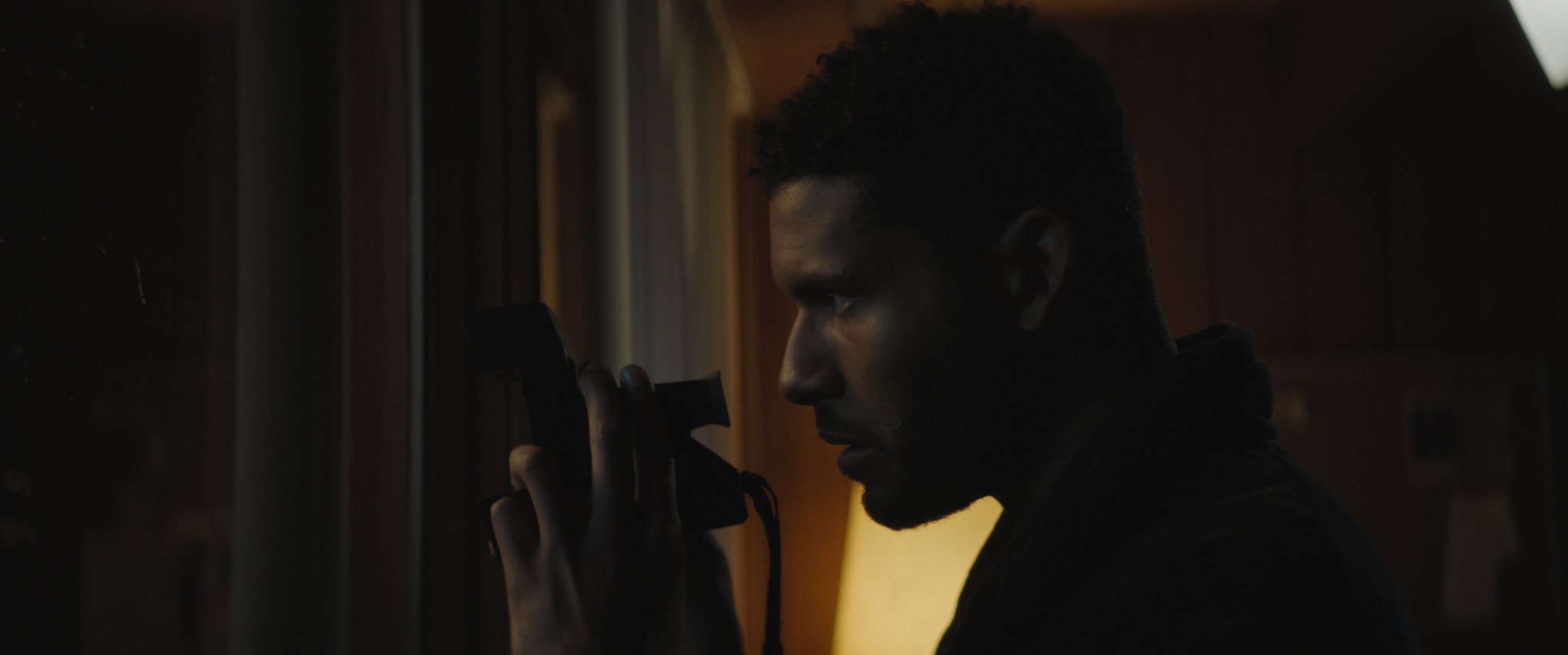What to Watch Verdict
'Spiral' features a tight script and impassioned performances that evoke terrifying, helpless feelings felt by countless LGBTQ+ individuals in their daily lives.
Pros
- +
🌀 Horrors benefitted by representation.
- +
🌀 Strong leading roles.
- +
🌀 Payoffs don't hold back.
Cons
- -
🌀 Frameworks are familiar.
- -
🌀 Ambitious to a fault at times.
The horrors of supremacy and discrimination seem to be themes America will never outrun. It’s of no fault to filmmakers; hate-spewing wolves raise their heads whenever society lets its guard down. Kurtis David Harder’s Spiral provokes the fears of the unwanted in a disturbed suburbia bubble, where oppression and cultism link hand-in-hand. A cycle we’re doomed to repeat, as critics continually call movies “relevant” decade after decade. Still poignant, as Harder’s proficient fearmongering and brutal exploitation of those most vulnerable strikes a chilling note of national failure that is, irony acknowledge, so displeasingly relevant.
Malik (Jeffrey Bowyer-Chapman) and Aaron (Ari Cohen) escape the city life for quiet nights, backyards, and a fresh start. Aaron’s daughter Kayla (Jennifer Laporte) isn’t thrilled with her family’s relocation, but quickly catches a local boy’s eye, which weakens her frustrations. Although, Malik isn’t convinced about their perfect little hideaway. Neighbors stare at the gay couple, saying things like, “we don’t have any of you in town,” and then threats become overt. Unfortunately, it’s something only Malik notices. Aaron’s comforted by new neighbors who act hospitable and welcoming, but Malik suspects sinister intentions behind boozy dinner parties and bonfires.
From the opening sequence, where a bird smashes into Aaron’s windshield, leaving a circular crack twirling into itself, Spiral curses its innocent parties. It’s a double-edged sword where openly gay characters like Malik are tortured by the inhumanity they’ve endured their entire lives then meet the performative charms of a “nice guy” like Marshal (Lochlyn Munro), who even in courteousness, reminds of persecutors who’ve merely adapted their ways. It’s evil, pure chameleon paranoia, like an alteration on The Invitation. Kudos to Bradley Stuckel's cinematography, responsible for quite a number of "watchers in the window" shots that ruin any sense of home-sweet-home safety.
Harder’s ability to merge horrors of everyday lifestyles with more cinematic supernatural asides is never a distraction. Malik’s increasing distrust is supported by reason. His mind keeps flashing back to when bigots bashed his boyfriend’s head with baseball bats, which sets the stage for his intense caution. When he comes home to the “f-word” spray-painted on his wall, or when he glimpses ritualistic dancing across the street, these aren't blink-and-you’ll-miss red flags. Spiral pushes Malik, resurfaces anti-gay traumatization, and then as mentioned above, strikes even harder by adding ghostly visions into the mix. An element that peels yet another layer - social horrors, cult horrors, now paranormal horrors - and works to accentuate Malik’s disturbed state of mind.
The thing is, Spiral isn’t all that complicated in its nightmarishness. Malik and Aaron’s targeted harassment is expected, further attacks reflect similar horror narratives, and Harder doesn't hide how "outsiders" are and will always be viewed as just that. What sets this film apart is character development, performances of actors facing demons of flesh and blood. Malik’s tragic history generates empathy, given how the cycle once again repeats. His relationship with Aaron and “Booger,” aka Kayla (Jennifer Laporte shines), emanates a familial bond that deteriorates under circumstantial wickedness. One man clings to an idea that homophobia has vanished, while another will never forget the pain he’s endured for his “sinful” choices. Both punished, both tortured, both assured there is no escape whether you want to believe in change or engrained behaviors.
Jeffrey Bowyer-Chapman brings fistfuls of fight and awareness to his knockout portrayal of Malik. A man who goes from demanding Kayla not publicly speak out since being different is a punishable offense in America to ending the film with uttering a powerful closing line: "hope is never silent." Something positive to cling onto after a graphic turn of third-act events.
Spiral feels so natural in its commentary, and how that translates into an effectively tension-heavy narrative is as creepy as it is contemplative. Jeffrey Bowyer-Chapman and Ari Cohen are magnetic as their romantic companionship both attracts (one another) and repels (small-town hive minds). As a horror film packed with leather-bound manifestos, ominous locked-eye standoffs across block parties, and bloody, spiteful messages sent in the form of break-ins, familiarity does not equate to wasted potential. I’d recall something like Erlingur Thoroddsen’s Rift in comparison, and how the gay experience so easily represents horror cinema that reworks dependable formulas with newfound perspective. A tale about the falsities about how far we come, the realities minority demographics still endure while allyship is marketed like a commodity and toxicity still pollutes more pools of thought than many want to admit.
Matt Donato is a Rotten Tomatoes approved film critic who stays up too late typing words for What To Watch, IGN, Paste, Bloody Disgusting, Fangoria and countless other publications. He is a member of Critics Choice and co-hosts a weekly livestream with Perri Nemiroff called the Merri Hour. You probably shouldn't feed him after midnight, just to be safe.












